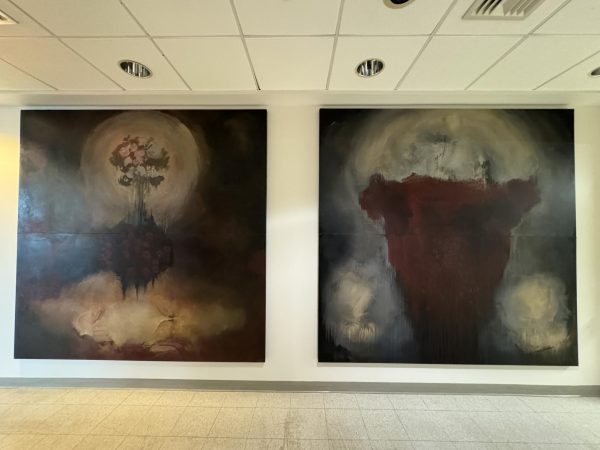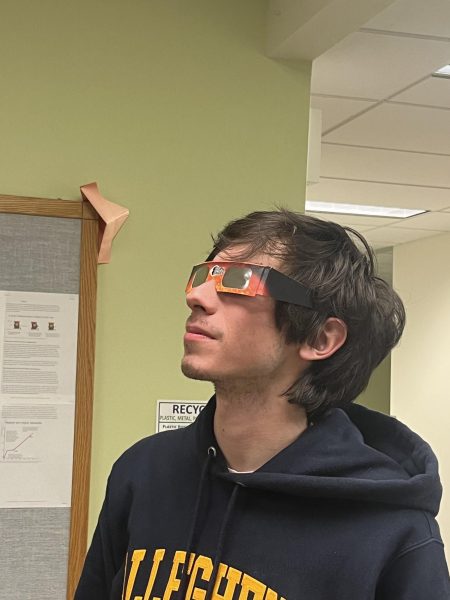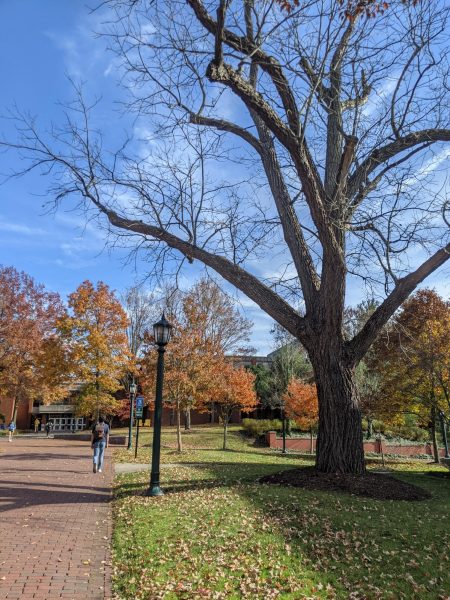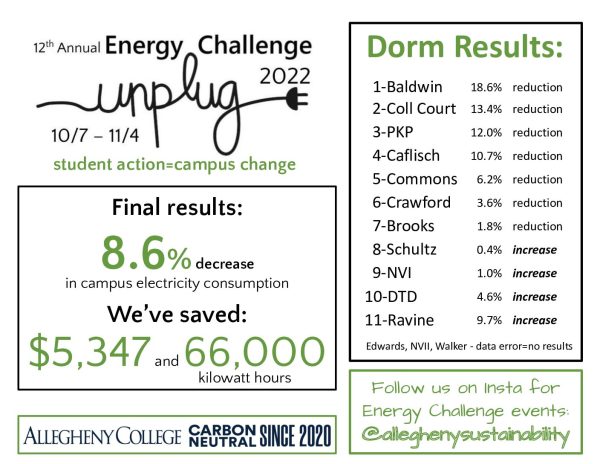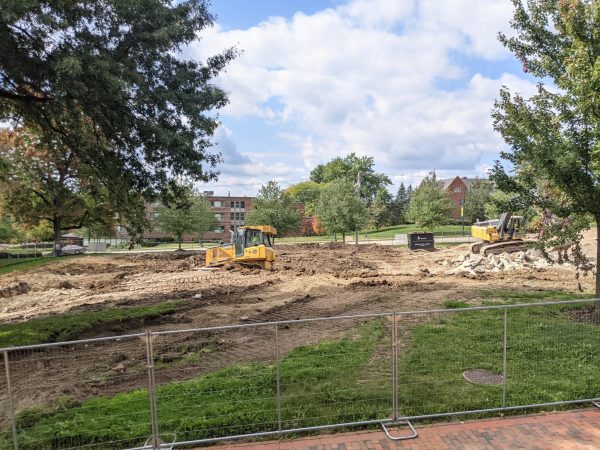‘We have lost the art of dying’
Annual Lehman Ethics Lecture explores protocols surrounding death
Daniel Hall, associate professor of surgery at the University of Pittsburgh, delivered the 11th annual Lehman Ethics Lecture this Wednesday, Feb. 24 at the Quigley Hall auditorium. His chosen subject for the lecture was the art of dying.
Hall, in an auditorium filled largely with pre-medical students at the beginning of their careers, explored the conversations and decisions that people at the end of their lives must face.
“We’re living in a culture with illusions, if not delusions, that affect our autonomy,” said Hall. “There is this belief that, if we only had better medical technology, it could help us get out of life alive.”
Hall was introduced by Steven Farrelly-Jackson, associate professor of philosophy and global health studies at Allegheny College.
“Dan Hall is both a general surgeon and an ordained priest in the Episcopal church, as well as being a bioethicist,” said Farrelly-Jackson. “Earlier today, I remarked that this represents the unusual combinations we pride ourselves of at Allegheny.”
Hall drew upon his experience as a surgeon as well as a host of academic research to present what he believes is a cultural issue surrounding Americans’ approach to death. As in most academic presentations, he presented his talk in a problem-and-solution model.
“Here is the challenge: baby boomers are getting old,” said Hall. “They are living longer than anyone in recorded history. And as they get old, they’re getting sick.”
According to Hall, one-third of persons over the age of 65 will require surgery in the last year of their life; but operations on people in this age group often involve high mortality rates and longer hospital stays. If patients make it out of the hospital, they may need an extended or permanent stay in a nursing home. Post-surgical procedures reduce the ability of patients to live independent and reduce their quality of life.
The question, according to Hall, is: is there any way to decide who among the elderly will benefit—and who will not—from surgery?
As of right now, the surgeon decides who should and should not undergo surgery, largely at their own discretion. According to Hall, the decision of when to operate and when not to operate is often more difficult than deciding exactly how to perform a surgery, or which kind of surgery to perform.
“One of the hardest things to learn as a surgeon is when to keep the scalpel in the scabbard,” said Hall. “You can teach a monkey to do operations. It takes a human being to know when to do them and when not to do them.”
Letting the patient decide, according to Hall, is ethically the best way that surgeons can respect their patient’s autonomy. But a number of factors, including misinformation and cultural distortions, all impact a patient’s ability to make a decision that is in their best interests.
First and foremost, Hall argues, American society has cultivated a false idea of what he describes as a technological utopianism, in which doctors and patients cooperatively set unreasonable expectations regarding diseases, treatments and operations.
“There is something intrinsically Promethean to the aspirations of public medicine that shape the way doctors and patients talk to each other and set up expectations that may not be reasonably realistic,” said Hall.
A faulty practice in prognostication, or the prediction of a patient’s remaining lifespan, also limits patients’ autonomies, according to Hall. Doctors will often exaggerate timescales for the lifetimes of patients with terminal diseases.
“This does the patient the disservice of not letting them know where they stand in their life,” said Hall.
Not surprisingly, the raw power of the fear of death also contributes to limit a patient’s capacity to make clear decisions. Hall drew upon his theological education to offer a historical perspective on how American culture has warped the perception of death.
“The great litany… of the middle ages’ [Christian] church was, ‘Good Lord, prevent us from dying suddenly and unprepared,’” said Hall. “We have lost the art of dying.”
Yet another limit on autonomy, according to Hall, is the pervasive ‘fix-it’ model by which most surgeons think and operate.
“I like the immediate gratification of surgery,” Hall said. “‘You have an infective gallbladder, I have a knife, I cut out the gallbladder, you feel better.’ This works… if the human body is 35 years old and there is an expectation of a relatively unlimited time horizon.”
And within this mode of thinking, surgeons usually disregard explaining everything that a surgery requires to a patient—including complications that may arise during recovery.
“Failure is not death on the operating room table,” said Hall. “[Patients] die in the ICU after we have kept them alive doing all the things people are terrified of.”
But surgeons do not usually describe these possibilities to patients.
“We do not ask them what they are afraid of. We do not ask them of what they are really hoping to achieve, other than, ‘do you want to live longer?’” said Hall. “And we don’t ask what people are willing to suffer to achieve what they hope for.”
Hall called for a system of determining who goes into surgery that lets a patient decide for themselves, but also seeks to eliminate as much misinformation and vagueness as possible. That system, according to Hall, involves a metric known as frailty.
“It’s the little old lady that you all know who can’t get up from her chair,” said Hall.
The test for frailty is deceptively simple: it involves measuring the time it takes for a patient to get up from a chair, walk three meters, touch a desk or wall and return to the chair. And, according to Hall, it is a far better predictor of who will fare well from post-surgical recovery than relying on the discretion of the surgeon alone.
An ideal decision, according to Hall, would begin by screening patients for frailty, and proceeding by informing them based upon their own health. This kind of practice would help increase transparency—a concept that Hall repeatedly outlined the need for—between doctor and patient.
“Some patients are going to keep making what I think are bad decisions,” said Hall. “But I think we can completely transform the way surgical procedures are handled in this country.”
The lecture was arranged by Kirsten Peterson, director of pre-professional studies at Allegheny, and Farrelly-Jackson. According to Peterson, the lecture series began when an Allegheny alumnus, Jack Lehman, ’54, decided to contribute to the education of pre-medical students at Allegheny.
“We try our best to bring in relevant speakers who these students may eventually work with or meet in their careers,” said Peterson.



